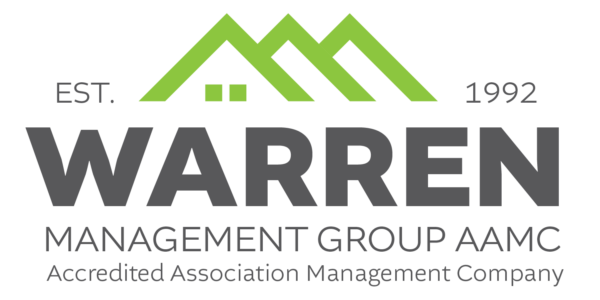What They Are … And What They Are Not!
Meeting minutes are one of the few documents that the Association must keep forever! Many records have a 1-year, 3-year, or 7-year lifespan in the Association’s records, but the Minutes Book must be kept in perpetuity. Why is this “set” of documents so important? Because meeting minutes are the official record of the corporation. They are a permanent record of decisions made by either the Board of Directors (or the Members in an Annual Meeting). If an action did not get recorded in the minutes of a meeting (or documented as an Action without a Meeting, also kept in the Minutes Book), the action was the same as never being spoken!
Some Associations try to use the meeting minutes as a way to communicate with the members about issues the Board discusses. The minutes are ineffective for this purpose because the minutes are to be a record of the “actions taken” (motions made & voted upon) ONLY, not the discussion had! In fact, the Association can cause information to be discoverable if included in the minutes without being an action. Allow me to give a recent example:
A few months ago, I was asked by a young couple to assess a situation they were in with their condo association to help them determine whether or not they were at fault for a $3000 water damage claim.
Their hot water heater had started to leak, but all of the leakage was contained in the drip pan beneath, which flowed down a pipe intended for such a purpose, to the unit below. It then tapped into that hot water heater overflow pan and piped the water down into a floor drain. The only problem was, the unit owner below did not keep the pipe directed towards the floor drain, so when the water from upstairs flowed through the pipe, it ended up all of that unit owner’s floor instead of into the drain! Who was responsible for the damage?
To give you the Reader’s Digest version of the events that took place, I found in the Minutes of two board meetings that the unit owner’s unit had not exploded and that no one saw the situation first hand until a day later. The minutes also indicated that although the Association had first intended to cover the claim, they changed their mind and decided to hold the unit owner having the leaking hot water heater responsible since they had had other claims and were having to collect a special assessment to meet the deductibles of those claims!
The Board did not have the right to arbitrarily hold the Owner responsible because they had a shortfall! They had also admitted in their Minutes that they did not see the placement of the pipe when the
incident occurred; that only the upstairs unit owner’s plumber witnessed the misplacement of the pipe in the unit below!
The Board had tattled on themselves in the Minutes, which the Owners had access to. These minutes were pages and pages long, with verbatim discussion and opinion included! They ended up having to take responsibility for the claim. Do learn from their mistakes!
Minutes should follow the agenda. There is specific information that MUST be in the minutes:
- Type of meeting
- Name of the group
- Date, time, and place of the meeting
- Presence of the regular chairperson, secretary, and manager (or the names of their substitutes)
- Call to order; by whom, time
- Those present; those absent
- Minutes approval (as written or amended)
- Any changes made in the minutes voted upon
- Financial / Treasurer’s report – it is presented or received; never adopted or approved!
- Manager’s Report – again, it is presented or received; never adopted or approved
- Committee reports – presented or received only
- Motions – name of the motion maker, wording, and disposition of the motion (who made the 2nd is not necessary because if there were no second, the motion would have died)
- Time of adjournment.
Specifically, verbatim discussion, statements for which the Association could be held liable, and unbusiness-like comments should NOT appear in the minutes.
Proper preparation of the Minutes is crucial. Terms like “received” versus “approved” are highly significant! The Board approves what it deems to be the official position of the Association. With a monthly financial statement or report of some type, the Board does not have sufficient information to deem that as its official position! It was simply information received. Audit reports are adopted or approved. Meeting minutes are adopted or approved. Reports are received!
It is strongly recommended that Association boards use the expertise of the management team for the preparation of Meeting Minutes. It is one of the many values they bring to the table!
